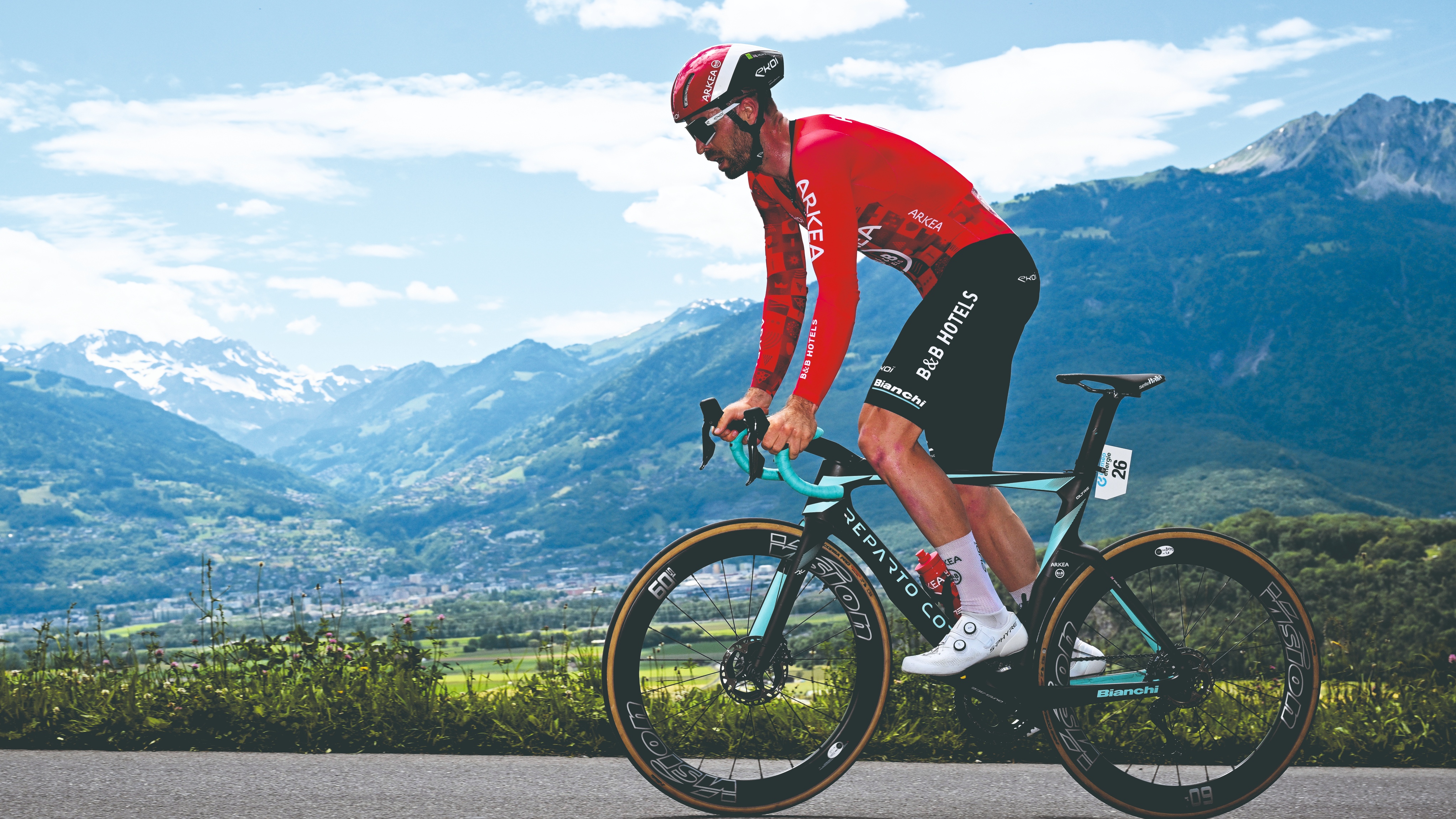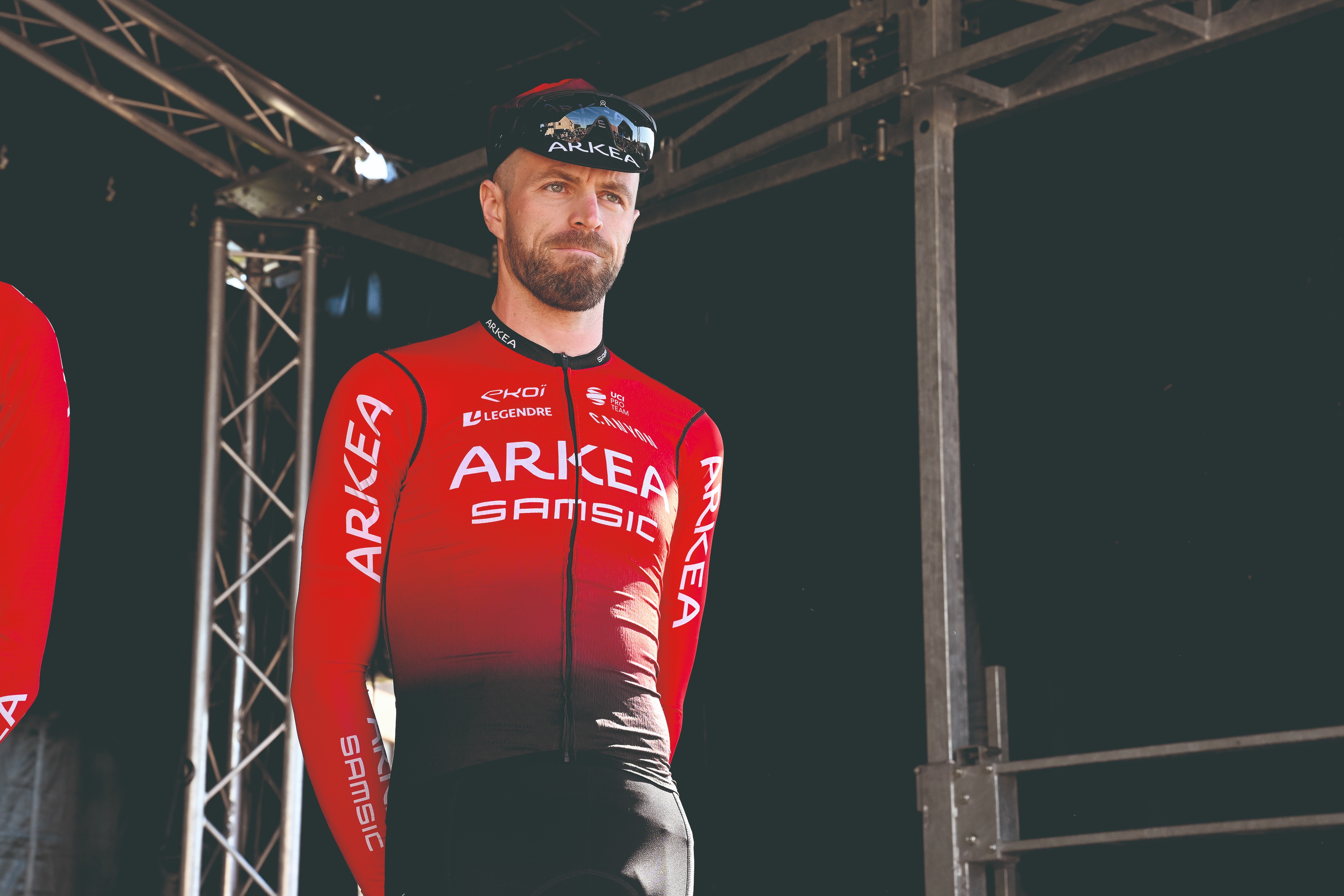
British pro Dan McLay has enjoyed the kind of consistent, solid career most neo-pros only dream of achieving when they take their first steps into the professional bubble. He has won 10 pro races and has competed in four Tours de France, including this year’s.
The 32-year-old is rarely a protected sprinter these days, instead acting as one of Arkéa-B&B Hotels’ main leadout riders. He has ridden for Arkéa for almost his entire top-level career, save for two years at EF Education First.
Born in Wellington, New Zealand, McLay grew up in Leicester after his family relocated, and he now resides just outside of the Estonian capital of Tallinn, the home country of his partner.
What’s the key to longevity?
For an amateur I don’t think there’s a specific key, but as a pro it’s finding a niche, because if you’re just generally good but don’t specialise, you don’t tend to last long. It was easy for me, having been a sprinter, to become a leadout man in the last few years, as all it’s required is moving the finish line in my head by a few hundred metres – and I feel like I’m improving all the time.
How have you improved?
By focusing less on outright speed and getting more diesel into my body, tolerating more and more load and also keeping my weight stable. The trend in the sport is of young guys dominating, but there’s no reason why you should deteriorate in performance as you get older. It’s a sport of perseverance, and for me training that diesel engine has been crucial.
How do you navigate a messy sprint?
I’ll watch my victory at GP de Denain [in 2016 when he came from deep to win spectacularly] whenever someone tags me in it. There is some instinct in going through gaps, but you also need a bit of luck as well. An important thing in a sprint is not getting caught up on numbers. Because of the fatigue, our peak power is typically well below the maximum we’re capable of.
Is Estonia a good place to train?
It’s pretty flat, there’s not too much traffic, so you press the lap button wherever you are and just go. For intervals, it’s excellent. There is always a bit of wind, and it’s not exactly boiling hot, but I have lots of training camps in Spain.
Quick fire round
Favourite place to ride?
Girona, but altitude camps are best in Colombia.
Favourite race?
It’s a dream to win Milan-San Remo
Favourite rest day activity?
Going to the beach with my kid and partner.
Favourite cafe stop treat?
Cinnamon bun.
Favourite sport or hobby other than cycling?
Building the never-ending fire pit in the garden.
Favourite quality in a training partner?
They know when to stop talking.
Dan's quick tips

1) Don’t stress your weaknesses. For me, going uphill has always been a struggle, but if I do too much of it, I get too tired.
2) Go for three-hour rides in the countryside with no plan other than enjoyment.
3) It takes time to adapt to the extra carbs during races. The amount we need has gone up a lot. Don’t force it if you can’t digest it.
This feature originally appeared in Cycling Weekly magazine. Subscribe now and never miss an issue.







